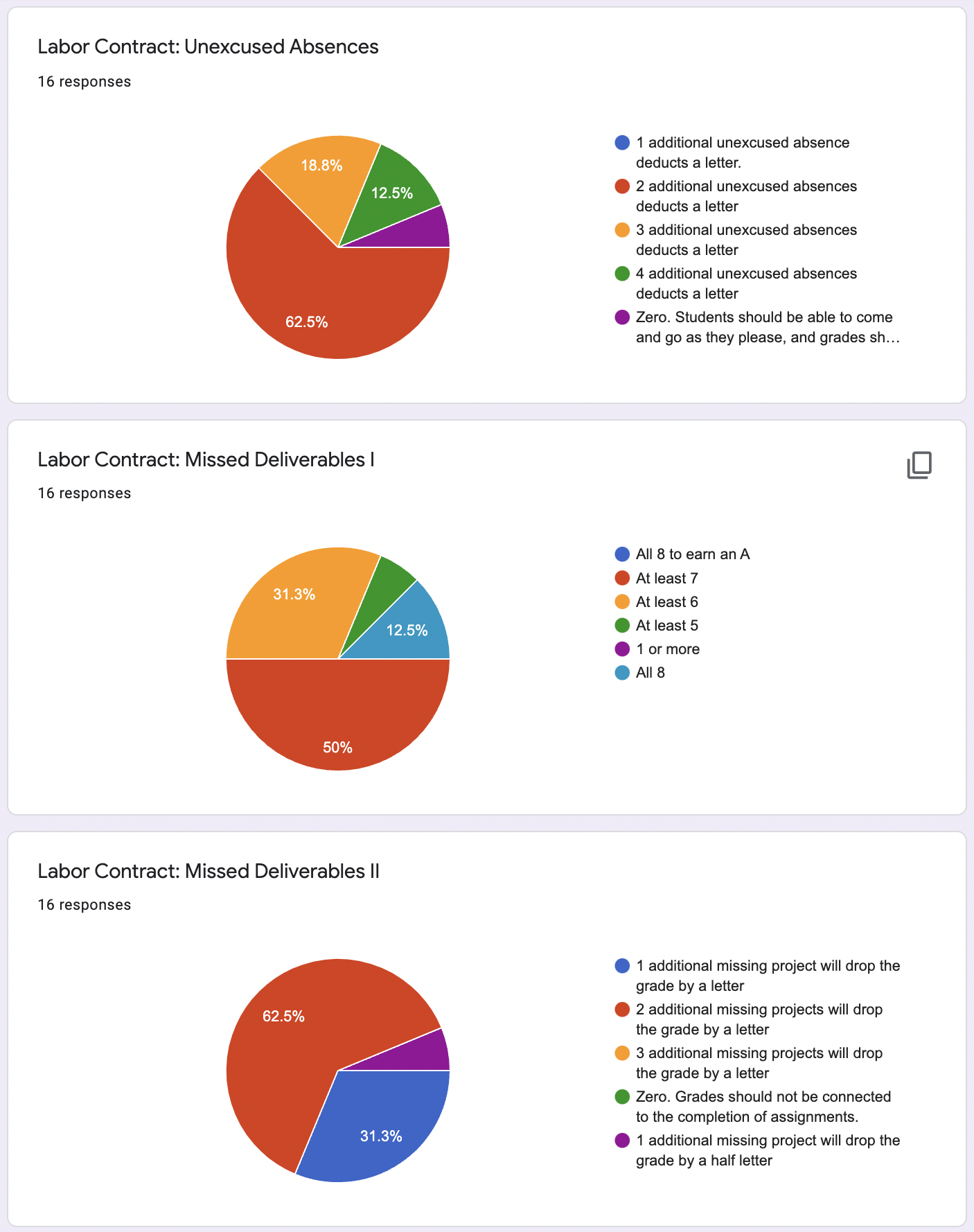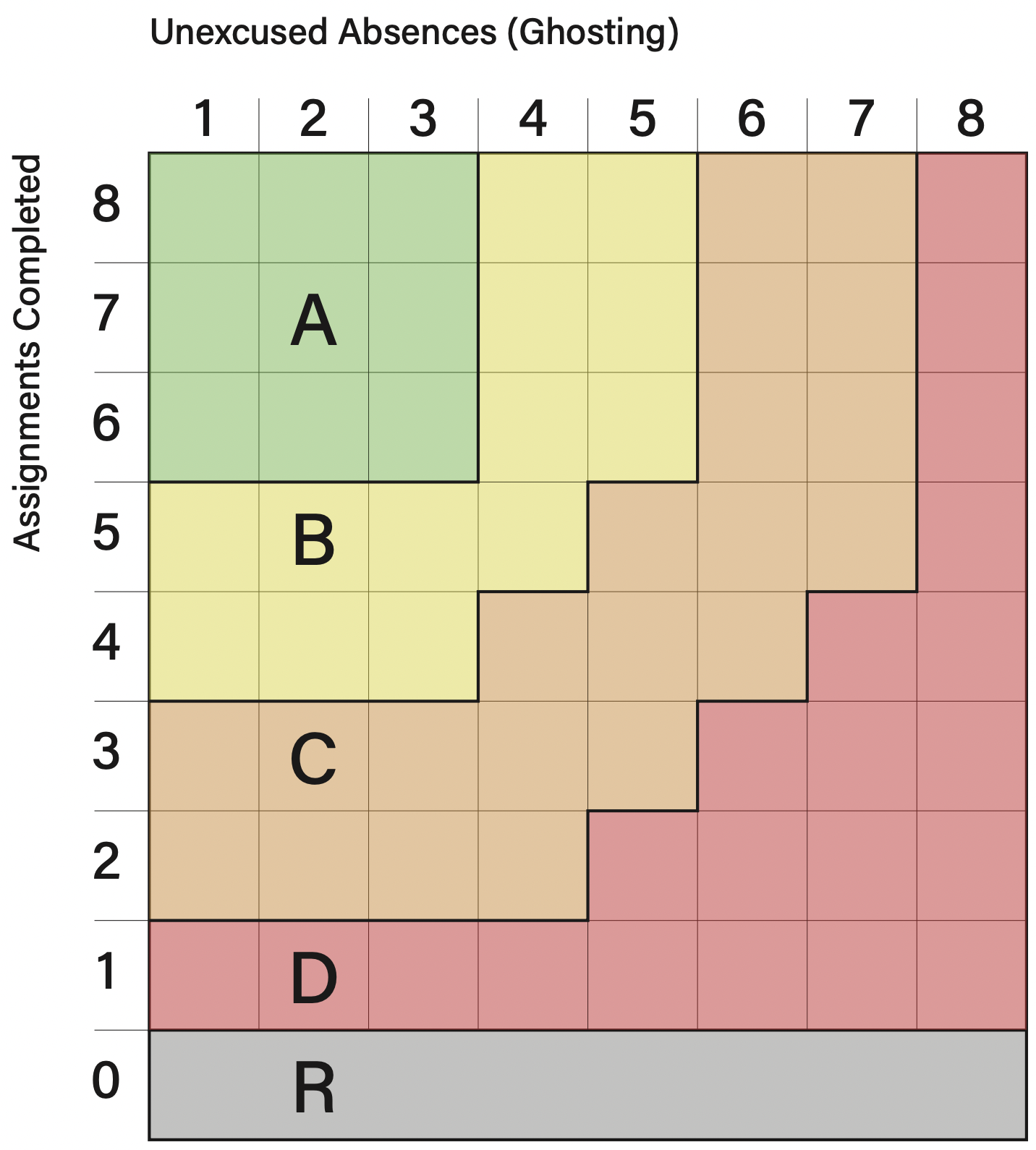Contents
- Overview of Process
- Our Spring 2022 Labor-Based Grading Contract
- Sign this form: https://forms.gle/LfqUPPeXWqxzE7DQ9 to accept.
Overview of Process
We conducted a survey of the class, and received a 100% response rate of the 16 students, for the following three questions:
- You’re already allowed one unexcused absence, per the Attendance Policy of our syllabus. We have 27 class sessions this semester. In your opinion, how many additional unexcused absences should lower a student’s grade by a letter? Note that we’re talking about unexcused absences — when a student ghosts a class event, without communicating beforehand with the professor. If you inform me before class that you’re going to be absent (due to illness, a business trip, family matter, religious holiday, etc.) then it’s not an unexcused absence, it’s just an excused absence, which is fine!
- We have 8 major projects this semester. In your opinion, how many projects should be completed to earn an A grade?
- In your opinion, how many additional missing projects should lower a student’s grade one letter?
Here were the results of our survey:

Our Spring 2022 Labor-Based Grading Contract
Based on the above, I have decided to follow the preferences of the strong majorities in the class, and where possible, or where the case is ambiguous, I have adopted even more liberal policies. Our grading contract for this semester is articulated by the chart below, and can be quickly summarized as follows for the overwhelming majority of participants in the class:
- A student who completes 6-8 assignments, and who is responsible about communicating with the professor about their absences, will earn an A.
- A student who completes 4-5 assignments, and who is responsible about communicating with the professor about their absences, will earn a B.
Note that an assignment will be considered sufficiently “complete” if at least 75% of the items on its required checklist are completed. Detailed checklists for each assignment will be provided (here’s an example). Policies for late work (in our syllabus) may differ from assignment to assignment, depending on how the assignment is reviewed (guest critics, in-class critique, public exhibition, etc.). Late projects may receive credit, but will generally not receive much if any feedback.

